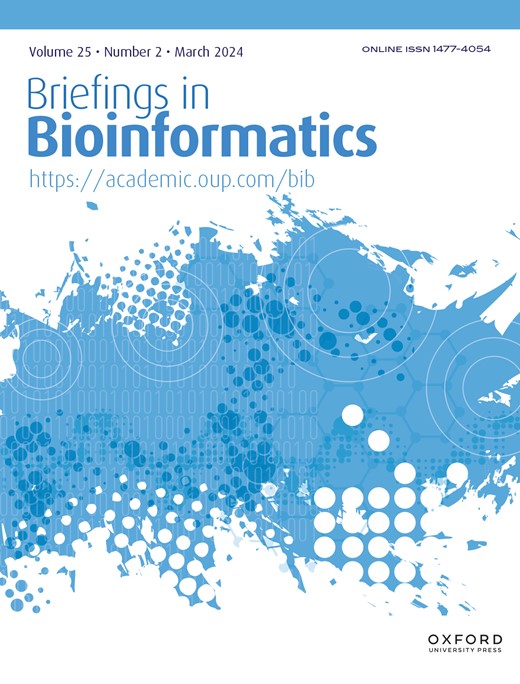PGBind: pocket-guided explicit attention learning for protein–ligand docking
IF 6.8
2区 生物学
Q1 BIOCHEMICAL RESEARCH METHODS
引用次数: 0
Abstract
As more and more protein structures are discovered, blind protein–ligand docking will play an important role in drug discovery because it can predict protein–ligand complex conformation without pocket information on the target proteins. Recently, deep learning-based methods have made significant advancements in blind protein–ligand docking, but their protein features are suboptimal because they do not fully consider the difference between potential pocket regions and non-pocket regions in protein feature extraction. In this work, we propose a pocket-guided strategy for guiding the ligand to dock to potential docking regions on a protein. To this end, we design a plug-and-play module to enhance the protein features, which can be directly incorporated into existing deep learning-based blind docking methods. The proposed module first estimates potential pocket regions on the target protein and then leverages a pocket-guided attention mechanism to enhance the protein features. Experiments are conducted on integrating our method with EquiBind and FABind, and the results show that their blind-docking performances are both significantly improved and new start-of-the-art performance is achieved by integration with FABind.PGBind:用于蛋白质配体对接的口袋引导显式注意力学习
随着越来越多的蛋白质结构被发现,盲法蛋白质配体对接将在药物发现中发挥重要作用,因为它可以在没有目标蛋白质口袋信息的情况下预测蛋白质配体复合物的构象。最近,基于深度学习的方法在蛋白质配体盲对接方面取得了重大进展,但由于这些方法在提取蛋白质特征时没有充分考虑潜在口袋区域和非口袋区域的差异,因此其蛋白质特征并不理想。在这项工作中,我们提出了一种口袋引导策略,用于引导配体与蛋白质上的潜在对接区域对接。为此,我们设计了一个即插即用模块来增强蛋白质特征,该模块可直接集成到现有的基于深度学习的盲对接方法中。所提出的模块首先估计目标蛋白质上的潜在口袋区域,然后利用口袋引导关注机制来增强蛋白质特征。实验将我们的方法与 EquiBind 和 FABind 集成,结果表明它们的盲对接性能都得到了显著提高,与 FABind 集成后还实现了新的起始性能。
本文章由计算机程序翻译,如有差异,请以英文原文为准。
求助全文
约1分钟内获得全文
求助全文
来源期刊

Briefings in bioinformatics
生物-生化研究方法
CiteScore
13.20
自引率
13.70%
发文量
549
审稿时长
6 months
期刊介绍:
Briefings in Bioinformatics is an international journal serving as a platform for researchers and educators in the life sciences. It also appeals to mathematicians, statisticians, and computer scientists applying their expertise to biological challenges. The journal focuses on reviews tailored for users of databases and analytical tools in contemporary genetics, molecular and systems biology. It stands out by offering practical assistance and guidance to non-specialists in computerized methodologies. Covering a wide range from introductory concepts to specific protocols and analyses, the papers address bacterial, plant, fungal, animal, and human data.
The journal's detailed subject areas include genetic studies of phenotypes and genotypes, mapping, DNA sequencing, expression profiling, gene expression studies, microarrays, alignment methods, protein profiles and HMMs, lipids, metabolic and signaling pathways, structure determination and function prediction, phylogenetic studies, and education and training.
 求助内容:
求助内容: 应助结果提醒方式:
应助结果提醒方式:


